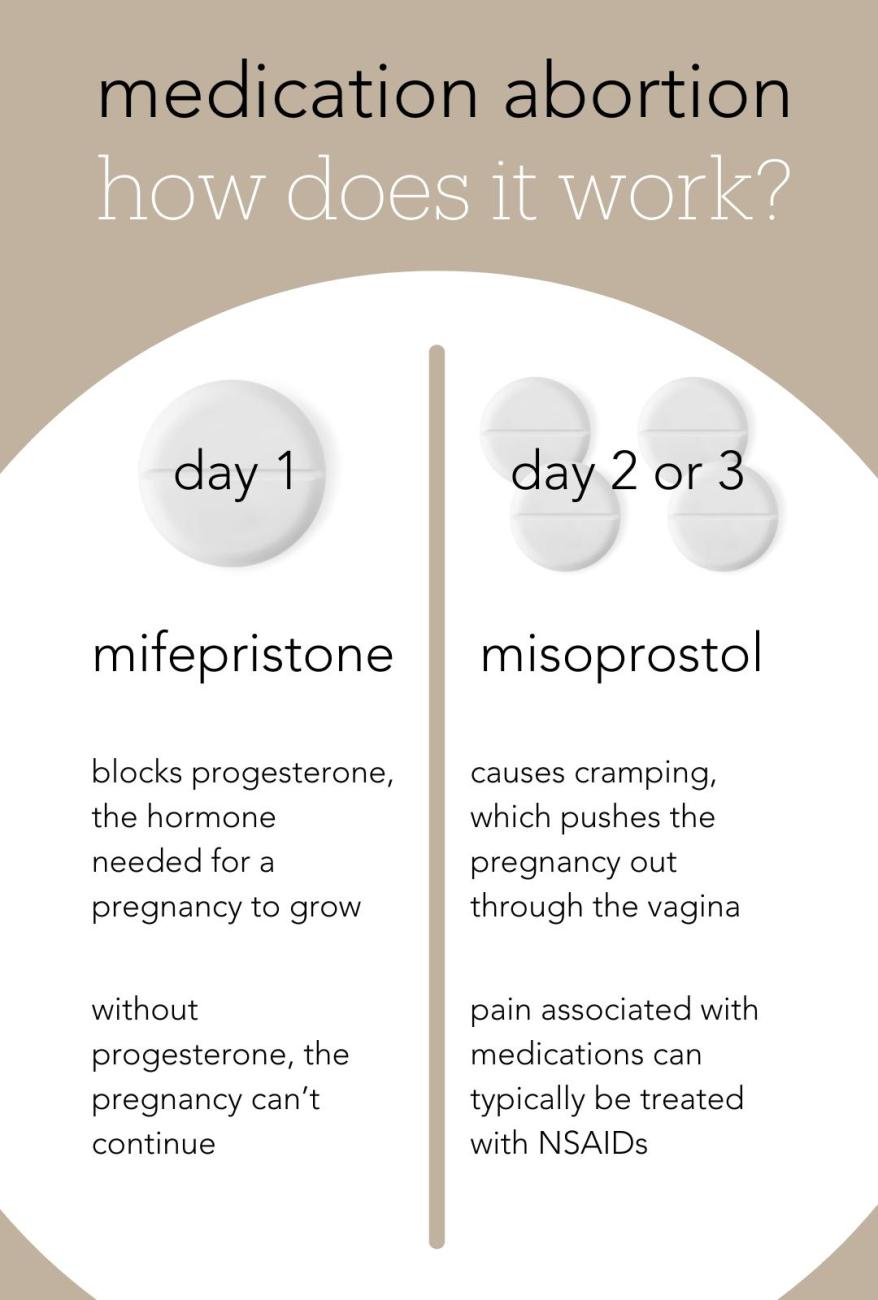
Medication abortion, known as MAB for short, is a type of evidence-based health care provided by the University of California's Student Health Service. Consultations for medication abortions are usually available within 1-3 days.
You can make an appointment through the MyHealth Portal.
People who are at or below 10 weeks of pregnancy and seeking abortion may be offered a choice of medication abortion or an aspiration abortion procedure. MAB is available on campus, but students can be referred out if a procedural abortion (aspiration abortion) is preferred.
For a medication abortion, one pill called mifepristone is taken to begin the abortion process and then a second dose of pills called Misoprostol one to two days later at home. An easy way to remember the names is "Mife (mif-ee) & Miso (mee-so)" for short. After taking Misoprostol (second set of pills, aka "Miso"), most people experience moderate bleeding and cramping, and pass the pregnancy over the next few hours. The experience is similar to a miscarriage.
A clinician will check to make sure that the pregnancy has passed completely over the next week to two weeks with either an ultrasound, blood test, or other type of follow-up. You can start birth control immediately after taking the second dose of pills and will be protected the next time you have sex. For a medication abortion, more than 98% of people have a successful abortion without the need for any more treatment.
Some people prefer medication abortion because it is private, they can be at home, and they don’t have to have a procedure. The abortion pills work to end the pregnancy over 98% of the time. Around 2% of people will still need a uterine aspiration after using the pills if their pregnancy doesn’t end or if they have heavy bleeding.
Its important to note that Emergency Contraception, such as Plan B, is not the same things as Medication Abortion (MAB). Plan B is a brand of emergency contraception that uses levonorgestrel to prevent ovulation and thickens cervical mucus to prevent sperm from reaching an egg. It must be taken within 72 hours of having intercourse. There are other types and brands of emergency contraception beyond Plan B, such as a copper-t IUD and ulipristal acetate. Emergency contraception (regardless of the type or brand) does not abort an existing pregnancy.
For more information about medication abortion (MAB), please visit: